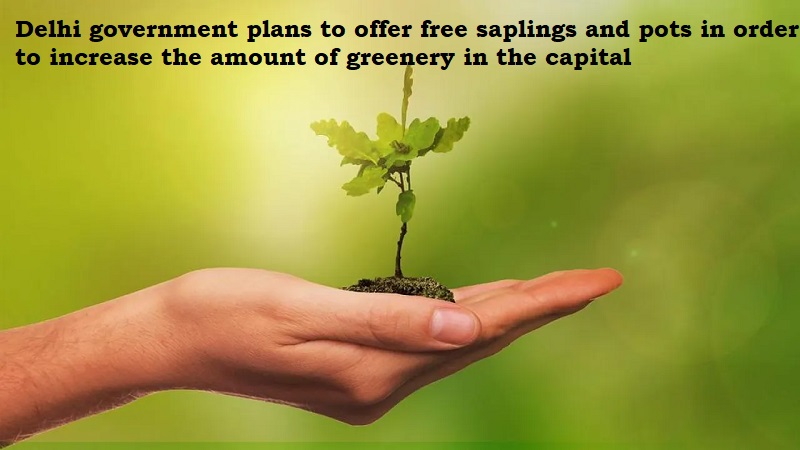
On April 19, the Environment Minister of Delhi, Gopal Rai, announced that the government is planning to provide free saplings and pots to the residents’ doorsteps to increase the amount of greenery in the capital. Rai mentioned that a team would be formed to identify plant species that have a high mortality rate after transplantation and to determine the impact of soil type and other factors on the relocated trees to increase their survival rate.
Although the green cover of Delhi has increased from 21.88 to 23.06 percent of its geographic area, according to the latest India State of Forest Report, the government is preparing other methods, such as urban farming, to increase the greenery. To launch a pilot project to provide plants and pots at no cost to people at their doorsteps, the forest department and the Municipal Corporation of Delhi will be joining hands.
The project is initially being conducted in one ward in Rai’s assembly constituency of Babarpur in northeast Delhi, and a ward-wise survey is being conducted to ask people what type of plants they want. The government is planning to set up more such projects in other places.
Delhi has about 10,000 residences per ward. As per biodiversity specialists, small plants are easier to maintain and use fewer resources than larger ones, making them a more sustainable option for increasing the amount of greenery in specific places. Rai stated that some species have very low survival rates, and some soil types are unsuitable for transplanting trees.
According to the forest department’s data submitted to the Delhi High Court in May last year, only 33.33 percent of the 16,461 transplanted trees in Delhi over the past three years have survived. Due to the Delhi government’s tree transplantation policy, the impacted agencies are required to relocate at least 80 percent of the trees affected by their development activities. After a year of transplantation, the benchmark tree survival rate is 80 percent.
Rai also stated that the Delhi government has succeeded in reducing air pollution to a significant extent and is now focusing on a smaller scale to determine which sources contribute to air pollution under what conditions. The government is launching projects to increase the number of greenery, and free plants and pots to residents’ doorsteps are part of it. The government is planning to set up more such projects in the future.

Post Your Comments